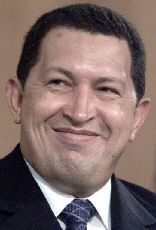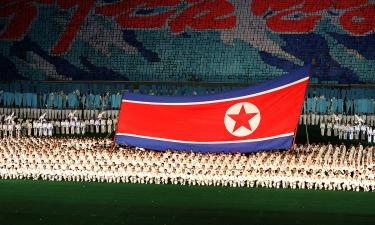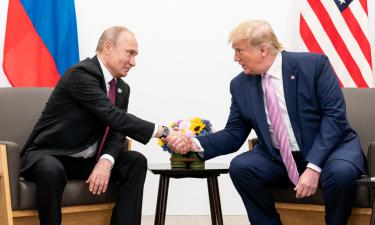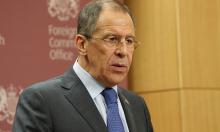Venezuela: Chavez would win a recall vote, poll says
 The leftist president of Venezuela is still popular despite attempts of the opposition to oust him.
The leftist president of Venezuela is still popular despite attempts of the opposition to oust him.
Bad news for Venezuela's opposition to leftist president Hugo Chavez Frias. According to a recent poll, Chavez would win a recall vote if it were held now, despite all the media campaign to oust him halfway the end of his mandate which expires in 2007. The independent research carried on by Alfredo Keller & Associates says that thirty-five per cent of registered voters backed Chavez while 31 per cent would vote against him. Another 34 per cent of those questioned opposed Chavez but were likely to abstain from voting in any referendum because they were frightened or had lost faith in the opposition.
Observers believe the reasons for people's opinion have to be found in the internal divisions inside the opposition forces. However, it is clear that Chavez, after a frustrated deadly coup in April 2002, two months of general strike in 2003 and a permanent campaign against him from media monopolies, is still popular among the poor.
Venezuela is divided in two. There are those who want Chavez out now and those who want Chavez to stay. Among the first are the middle and the upper classes, which claim Chavez is trying to set up a Castro-styled communist ruling. On the other side, the poor people, a majority in Venezuela, which have experienced an improvement in their lives since the former Army Colonel became the head of the State.
Anti-Chavez observers say the president has benefited from increased spending on social projects and had eroded support for any vote by fostering an atmosphere of violence and by damaging his rivals' reputations. However, it is difficult to point out Chavez for the political violence in a traditionally violent country -South America's most—as Venezuela. Moreover, Chavez does not control Caracas’ police, handled by the opposition, a force which has been held liable for atrocities against president’s supporters.
Opposition groups have been pressing for a referendum since December, when they held a signature collection campaign. They accuse the former army officer of dragging the nation toward authoritarian rule and of violating the constitution in his battle to stop the referendum.
Chavez had promised to check each and every signature collected, as the Electoral Council found hundreds of thousands of them non valid. Now, Electoral officials say the opposition collected only 1.9 million valid signatures while 1.2 million remain under dispute.
A referendum could be held August 8 if the opposition proves that it has an additional 525,000 valid signatures. But Chavez's rivals are deeply split over the checks. And Chavez, from the time being, can smile.
Subscribe to Pravda.Ru Telegram channel, Facebook, RSS!





